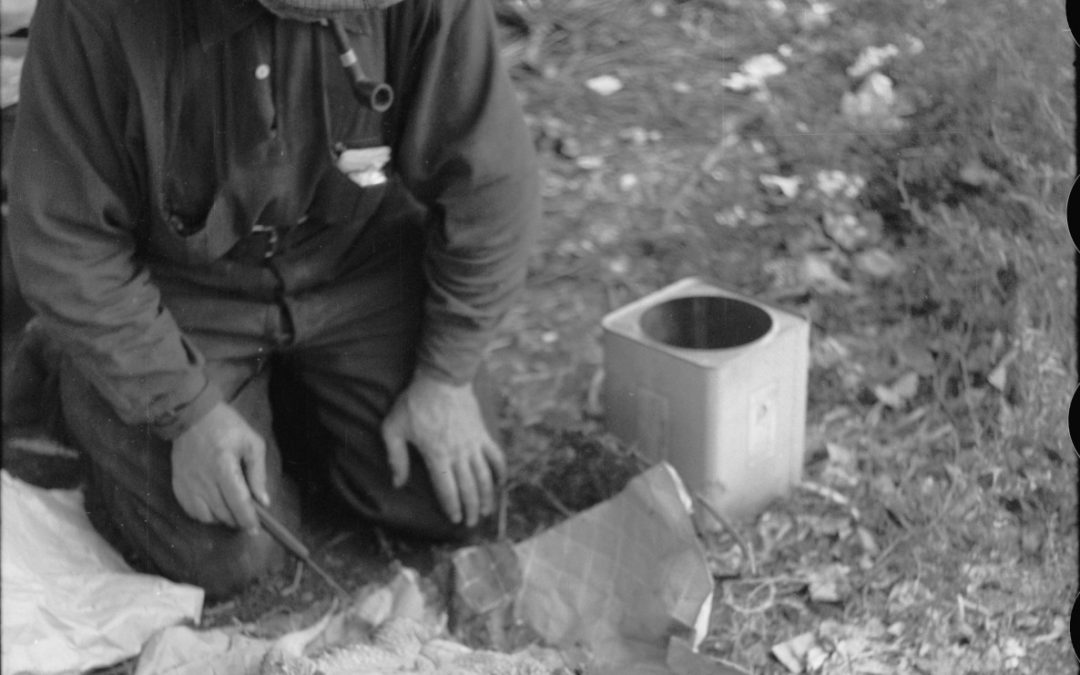
by Richard Subber | Oct 30, 2020 | Language, My poetry, Poetry, Reflections
Really, you had to be there…
(my new poem)
Debut
Saucy streaks in brightened sky at dawn
frame enlightened trees on yonder sward.
The arching hues quickly pale
to common blues,
and slide below still darkened earth,
beneath the rim that hides
the great star of day.
March 13, 2016
I was on the road, alone, early, heading downhill, cool in the morning, I was thinking about breakfast…a single break in the tree line offered one glimpse of the hot sauce smeared across the lightening skyline. I didn’t have to stop to make any notes for a new poem. I mentioned everything to my friend at breakfast. The vitality of it was still quivering in my mind when I wrote this little bit later that day. Call it a nature poem. Or call it a love poem, if you’re in love with beauty.
Book review: Cleopatra: A Life
…don’t even think about Gordon Gekko…
click here
My poetry. Copyright © Richard Carl Subber 2020 All rights reserved.
In other words: Poems for your eyes and ears with 64 free verse and haiku poems,
and the rest of my poetry books are for sale on Amazon (paperback and Kindle)
and free in Kindle Unlimited, search Amazon for “Richard Carl Subber”

by Richard Subber | Sep 14, 2020 | My poetry, Poetry
A slower, sadder take
on Bobbie Gentry’s classic…
another “Ode to Billie Joe”
…oh my, sweet teen love, no need to hurry…
Molly Johnson calls herself a jazz singer…she’s a lot more than that.
She’s my new fave (OK, I’m a bit late to the party), a while ago I heard her version of “Ode to Billie Joe” and I’m hooked, it’s on her “Lucky” release.
Now, Bobbie Gentry’s original 1967 cut is real good, too, but it has a driving element that rushes your heart to the climax and then leaves you sort of without words…
I think you’ll agree with me that Molly’s offering is slower, wistful, sadder, filled with sweet teen love and the raw silence of a breaking heart, and it fills your mind and heart with words…
…you know the Tallahatchie Bridge is a lonely place.
* * * * * *
Copyright © Richard Carl Subber 2020 All rights reserved.
Book review: The Snow Goose
…sensual drama, eminently poetic…
by Paul Gallico
–
Seeing far: Selected poems with 47 free verse and haiku poems,
and the rest of my poetry books are for sale on Amazon (paperback and Kindle)
and free in Kindle Unlimited, search Amazon for “Richard Carl Subber”
* * * * * *

by Richard Subber | Jul 31, 2020 | Language, Tidbits
Bill had a way with words…
“Methought I heard a voice cry ‘Sleep no more!
Macbeth does murder sleep’, the innocent sleep,
Sleep that knits up the ravell’d sleeve of care…”
Macbeth, Act 2, Scene 2
William Shakespeare (1564-1616)
I am not the heartiest Shakespeare fan in the world. You may agree with me that, often, a little bit of Shakespeare doth goe a longish way, ‘struth it be…
As well, agree with me that Bill was an indubitable master of the King’s English. Shakespeare added more words—hearty words, dumbfoundingly marvelous words—to our language than anyone else. I dare to say that everyone who speaks English mentions every day something that Shakespeare wrote.
This tidbit from Macbeth is a gift to language lovers everywhere. You don’t have to be a poet to recognize that “…knits up the ravell’d sleeve of care…” is a dazzling and profoundly experiential way to say “sleep heals.”
Anyone who nourishes a poetic muse can see that these words transform mundane familiarity with a domestic art into a vision of tender and urgent longing that fills a gaping hole in the mind.
I wish I’d said that.
* * * * * *
Copyright © Richard Carl Subber 2020 All rights reserved.
Book review: The Poems of Robert Frost
he hears those bluebirds talking…
click here
–
In other words: Poems for your eyes and ears with 64 free verse and haiku poems,
and the rest of my poetry books are for sale on Amazon (paperback and Kindle)
and free in Kindle Unlimited, search Amazon for “Richard Carl Subber”
* * * * * *

by Richard Subber | Jun 25, 2020 | Book reviews, Books, Joys of reading, Language
…relentlessly realistic dialogue…
(book review)
A Farewell to Arms
Ernest Miller Hemingway (1899-1961)
New York: The Modern Library, 1932.
It’s been a while since I read Hemingway.
A Farewell to Arms is a slow starter, and again I learned to pace myself without too much trouble. The action is restrained but steady, and again I realized gradually that a key element is the relentlessly realistic dialogue.
The American protagonist, Frederick Henry, is involved in every scene. The life of the book is his life. His recurring, desultory involvement in his own life and his role in the Italian Army in World War I is the backdrop of his elaborately recounted relationship with the nurse, Catherine Barkley.
A Farewell to Arms doesn’t really seem to be a war novel. On the other hand, except for brief interludes, the characters really don’t seem to be at peace. For Frederick Henry, it’s an ironic farewell.
* * * * * *
Book review. Copyright © Richard Carl Subber 2020 All rights reserved.
Book review: Seven Gothic Tales
by Isak Dinesen
lush and memorable stories…
–
Above all: Poems of dawn and more with 73 free verse poems,
and the rest of my poetry books are for sale on Amazon (paperback and Kindle)
and free in Kindle Unlimited, search Amazon for “Richard Carl Subber”
* * * * * *

by Richard Subber | Apr 1, 2020 | Human Nature, Reflections, Tidbits
The “Hobo Ethical Code”
Maybe you were thinking there’s no such thing as a “Hobo Ethical Code.”
(I’m not talking about “Politician’s Ethical Code,” don’t get me started….)
In 1889, at the Hobo National Convention in Chicago, the folks who proudly called themselves “hobos” adopted an ethical code that stands the test of time. You can read it below.
You’re right, we don’t have to spend a lot of time these days on the “boil up” part, but just about everything else in the 15-point code has some application to life today.
In fact, living like a noble hobo doesn’t sound like a bad idea at all.
For the record, a hobo is a migratory or homeless worker who looks for work, standing apart from the “tramp” who works when there isn’t much of an alternative and the “bum” who avoids work altogether.
Decide your own life; don’t let another person run or rule you.
When in town, always respect the local law and officials, and try to be a gentleman at all times.
Don’t take advantage of someone who is in a vulnerable situation, locals or other hobos.
Always try to find work, even if temporary, and always seek out jobs nobody wants. By doing so you not only help a business along, but ensure employment should you return to that town again.
When no employment is available, make your own work by using your added talents at crafts.
Do not allow yourself to become a stupid drunk and set a bad example for locals’ treatment of other hobos.
When jungling in town, respect handouts, do not wear them out, another hobo will be coming along who will need them as badly, if not worse than you.
Always respect nature, do not leave garbage where you are jungling.
If in a community jungle, always pitch in and help.
Try to stay clean, and boil up wherever possible.
When traveling, ride your train respectfully, take no personal chances, cause no problems with the operating crew or host railroad, act like an extra crew member.
Do not cause problems in a train yard, another hobo will be coming along who will need passage through that yard.
Do not allow other hobos to molest children; expose all molesters to authorities…they are the worst garbage to infest any society.
Help all runaway children, and try to induce them to return home.
Help your fellow hobos whenever and wherever needed, you may need their help someday.
p.s. It seems that no one knows how the word “hobo” originated.
* * * * * *
Copyright © Richard Carl Subber 2020 All rights reserved.
Book review:
Collected Poems of Sara Teasdale
Full of her passion, not mine…
click here
–
My first name was rain: A dreamery of poems with 53 free verse and haiku poems,
and the rest of my poetry books are for sale on Amazon (paperback and Kindle)
and free in Kindle Unlimited, search Amazon for “Richard Carl Subber”
* * * * * *

by Richard Subber | Mar 17, 2020 | My poetry, Poetry, Reflections
Look who’s counting!
At a certain age, counting fingers is a big thing.
Numerology
He’s counting his fingers now,
another threshold passed without a look back.
He puts some energy into it,
doesn’t remember to count every one every time,
but he’s counting, he’s doing it.
Old Grandfather starts it off,
tapping fingertips,
“One, two, three…”
and he picks up the rhythm,
splaying the fingers of one hand,
fearlessly extending the count,
“…four, five, seven, eight.…”
A couple of those eager fingers get counted twice,
sticking up like chicks in the nest stretching for the worm,
and that’s alright, those fingers are stretching
for the joy of discovery
and the cool of flashing in the air
in the ritual of counting fingers with Old Grandfather,
and counting twice is confirmation, not a sin.
We do it again.
Same noisy delight. Different count.
Someday he’ll understand that doing it together is what counts.
October 10, 2015
My poem “Numerology” was published in my first chapbook, Writing Rainbows: Poems for Grown-Ups. You can buy it on Amazon (paperback and Kindle), or get it free in Kindle Unlimited, search for “Richard Carl Subber”
Previously published in The Australia Times Poetry, miller’s pond poetry magazine, and Whispers.
* * * * * *
My poetry. Copyright © Richard Carl Subber 2020 All rights reserved.
“…the ravell’d sleeve of care…”
wish I’d said that…(a bit of Shakespeare)
–
My first name was rain: A dreamery of poems with 53 free verse and haiku poems,
and the rest of my poetry books are for sale on Amazon (paperback and Kindle)
and free in Kindle Unlimited, search Amazon for “Richard Carl Subber”
* * * * * *





